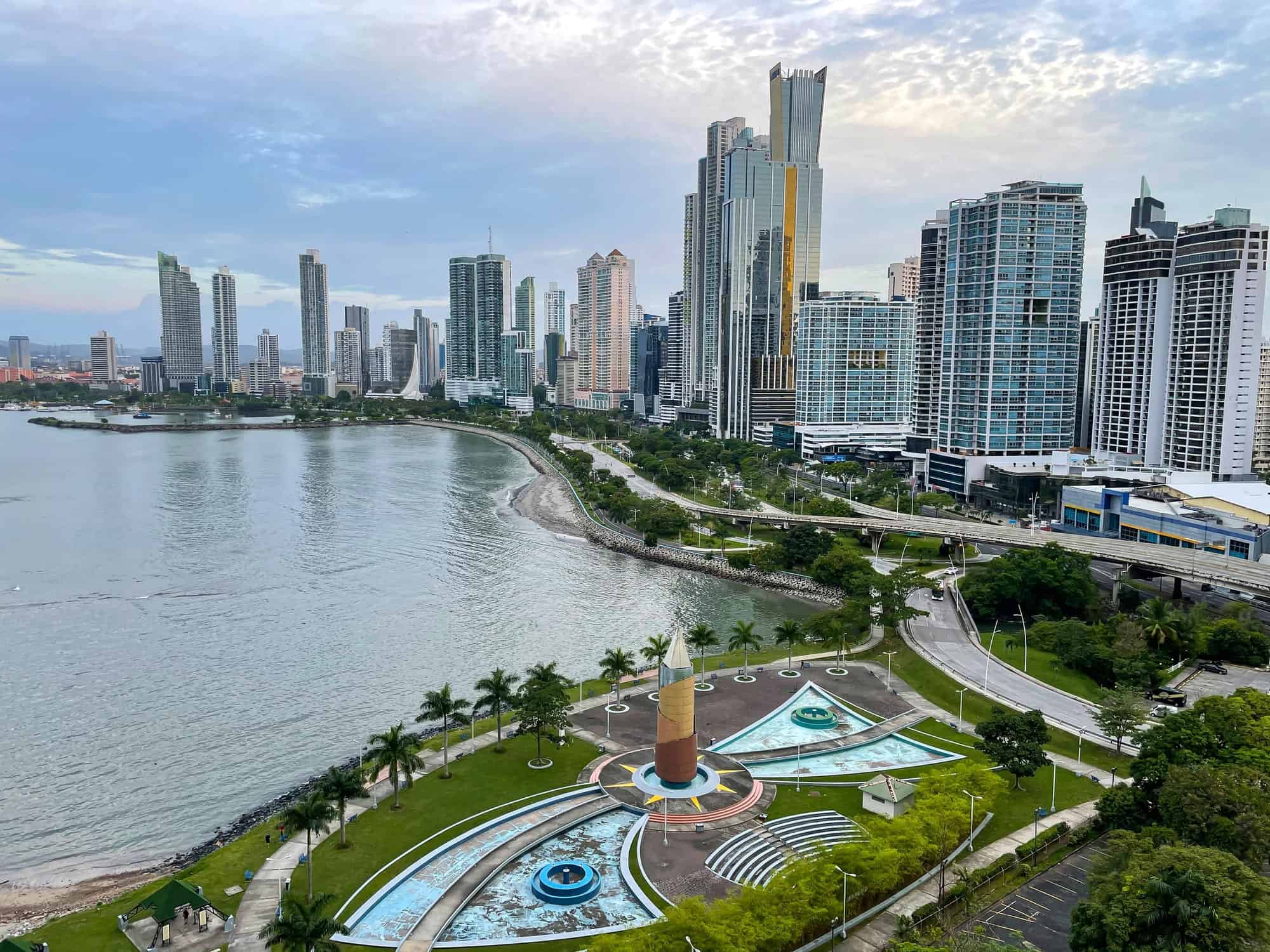Let’s explore into the advantages of setting up a Panamanian corporation for property ownership—an enticing prospect for investors, expats, and retirees alike. As the allure of international real estate investment continues to grow, Panama emerges as a beacon of opportunity, offering a myriad of benefits for those seeking to establish a foothold in the market. In this article, we delve into the fundamentals of Panamanian corporate structures, uncovering the strategic advantages they provide for property ownership ventures. From favorable tax incentives to simplified legal procedures, discover why setting up a Panamanian corporation could be the key to unlocking your property investment goals. Join us as we navigate through the intricacies of Panamanian corporate law and reveal the wealth of benefits awaiting savvy investors in this dynamic market.

The Panamanian Corporation: An Overview
The “Sociedad Anónima” (S.A.), or Panamanian Corporation, stands out for its adaptability, confidentiality, and straightforward management, appealing to investors, expatriates, and retirees interested in property ownership. This legal structure is formed under the provisions of Panama’s Law 32 of 1927, enabling both individuals and corporate bodies to establish companies without constraints on nationality or residency. The legislation aims to support business ventures, investment endeavors, and the safeguarding of assets, highlighting the benefits of privacy and tax optimization.
A Panamanian Corporation is organized with the following structure:
- Shareholder: Following incorporation, at least one shareholder, whether an individual or a business entity, must be present to receive the issuance of one share valued at $100.
- Directors and Officers: The corporation mandates a minimum of three directors responsible for corporate governance, comprising a President, Secretary, and Treasurer. These directors can be of any nationality and are not required to reside in Panama. Additionally, the corporation must designate officers for daily operations, with the potential for overlap between director and officer roles.
- Resident agent/registered agent: Every registered Panama corporation must appoint a resident agent, who can be either a lawyer or a law firm based in the country, to represent them in legal matters.
- Share capital: Typically, the authorized share capital amounts to $10,000, divided into 100 common voting shares, each valued at $100. Additionally, the issuance of shares without a specified par value and bearer shares is permitted, with the qualification that bearer shares must be held in custody by a resident agent or approved entities like a bank, fiduciary, or trust company.
Advantages of Using a Panamanian Corporation for Property Ownership
Using a Panamanian corporation to hold property presents numerous strategic advantages, rendering it a favored option among investors, expatriates, and retirees seeking real estate in Panama. Below, we delve into the benefits of utilizing a Panamanian Corporation:
- Asset Protection and Confidentiality: Should legal action arise against an individual, properties owned by a corporation typically provide a shield, as the legal entity possesses the assets, not the individual. This establishes a protective barrier for the property owner’s assets. Moreover, Panama’s rigorous privacy regulations guarantee the anonymity of the corporation’s proprietors, supplying an added measure of security and confidentiality in property ownership.
- Estate Planning and Succession Benefits: Utilizing a corporation streamlines the transition of property ownership following the demise of the proprietor. Unlike individual ownership, entailing a public and frequently prolonged probate procedure in Panama, property held by a corporation can swiftly and privately be passed on to heirs or specified individuals through the transfer of corporate shares. This method substantially diminishes the time, expense, and intricacy linked with estate inheritance.
- Operational Flexibility: Corporations possess the capability to swiftly engage in contracts, oversee investments, and execute transactions concerning the property. This adaptability also encompasses the streamlined management of property sales, leases, or other operational adjustments, eliminating the necessity for intricate legal procedures. Moreover, the capacity to convene meetings and reach decisions remotely amplifies operational effectiveness.
- Tax Efficiency: Panama follows a territorial tax system, which implies that income earned outside Panama isn’t taxed within the country. For Panamanian corporations, this exemption extends to income or capital gains from international operations or investments, including foreign-owned property. Such a setup offers substantial tax advantages, particularly for investors involved in global real estate endeavors.
- No Restrictions on Foreign Ownership: A foreign individual can possess 100% of shares in a Panamanian corporation, irrespective of their nationality or residency status. Panama’s regulations do not impose constraints on foreign property ownership, even when held through corporations. This policy grants international investors and expatriates identical rights to local investors, enabling them to acquire beachfront and rural properties without restrictions, a privilege often restricted or prohibited in other countries for foreign individuals.

Setting Up a Panamanian Corporation
a. Set-up Requirements
Here is a brief summary of all the requirements you must fulfill before proceeding with the registration process:
- Three potential company names;
- Shareholders’ names and details.
- Incorporation purpose/ intended activities.
- Operational duration (defined period or indefinite).
- Share capital.
- Allocation of nominal shares among shareholders.
- Details of at least 3 directors nominated by dignitaries, including their names and addresses.
- Resident agent’s name and address.
b. Best Practices
Establishing a Panamanian corporation for property acquisition involves a methodical process offering flexibility, privacy, and tax benefits. Below is a detailed, step-by-step guide to forming your own Panamanian Corporation:
- Opt for a Legal Representative: Your initial move entails opting for a legal representative in Panama, usually a seasoned law firm specializing in corporate and real estate law. This entity will navigate you through the incorporation procedure, guaranteeing adherence to local statutes and regulations.
- Choose a Company Name: You need to propose up to three company names for validation, ensuring their distinctiveness and absence of prior usage. The chosen name should incorporate a corporate suffix such as Inc., Corp., or S.A. to signify its legal framework.
- Prepare and Execute the Articles of Incorporation: The Articles of Incorporation serve as the cornerstone legal instrument for your corporation. They outline the company’s objectives, share capital, board of directors, and other critical corporate governance elements. This document must be prepared, signed by the subscribers (who may also serve as the initial shareholders), and subsequently notarized in Panama.
- Register with the Public Registry: Following the notarization of the Articles of Incorporation, the subsequent procedure involves enrolling the corporation with the Panamanian Public Registry. This formal enrollment holds significance for the legal establishment of your corporation.
- Secure a Tax Identification Number: Subsequent to enrollment, your corporation is required to secure a Tax Identification Number (RUC) from Panama’s Directorate General of Revenue. This identifier is indispensable for tax-related matters and all financial transactions.
- Open a Corporate Bank Account: Opening a corporate bank account, whether in Panama or elsewhere to suit your corporation’s operational requirements, is a vital process in managing your corporation’s finances. Additional documentation may be necessary, and adherence to the bank’s KYC (Know Your Customer) policies is essential.
- Apply for Necessary Permits or Licenses: If your corporation plans to conduct certain types of business activities in Panama, it’s essential to secure the necessary permits or licenses. This is especially important for commercial development projects or any business operations within Panama. Additionally, make sure to fulfill annual obligations, including paying the annual franchise tax and keeping corporate records current. Conducting regular legal audits can assist in maintaining the corporation’s compliance with Panamanian laws and ensuring its continued good standing.
Conclusion
In conclusion, setting up a Panamanian corporation for property ownership presents a lucrative opportunity for investors, expats, and retirees seeking to diversify their portfolios. With its favorable tax incentives and simplified legal procedures, Panama offers a strategic advantage in the international real estate market. From asset protection to financial flexibility, the benefits of establishing a Panamanian corporation are evident. As you embark on your property investment journey, remember the wealth of opportunities that await within Panama’s dynamic market. Embrace the advantages of Panamanian corporate structures and seize the potential for success in your property ownership endeavors.






